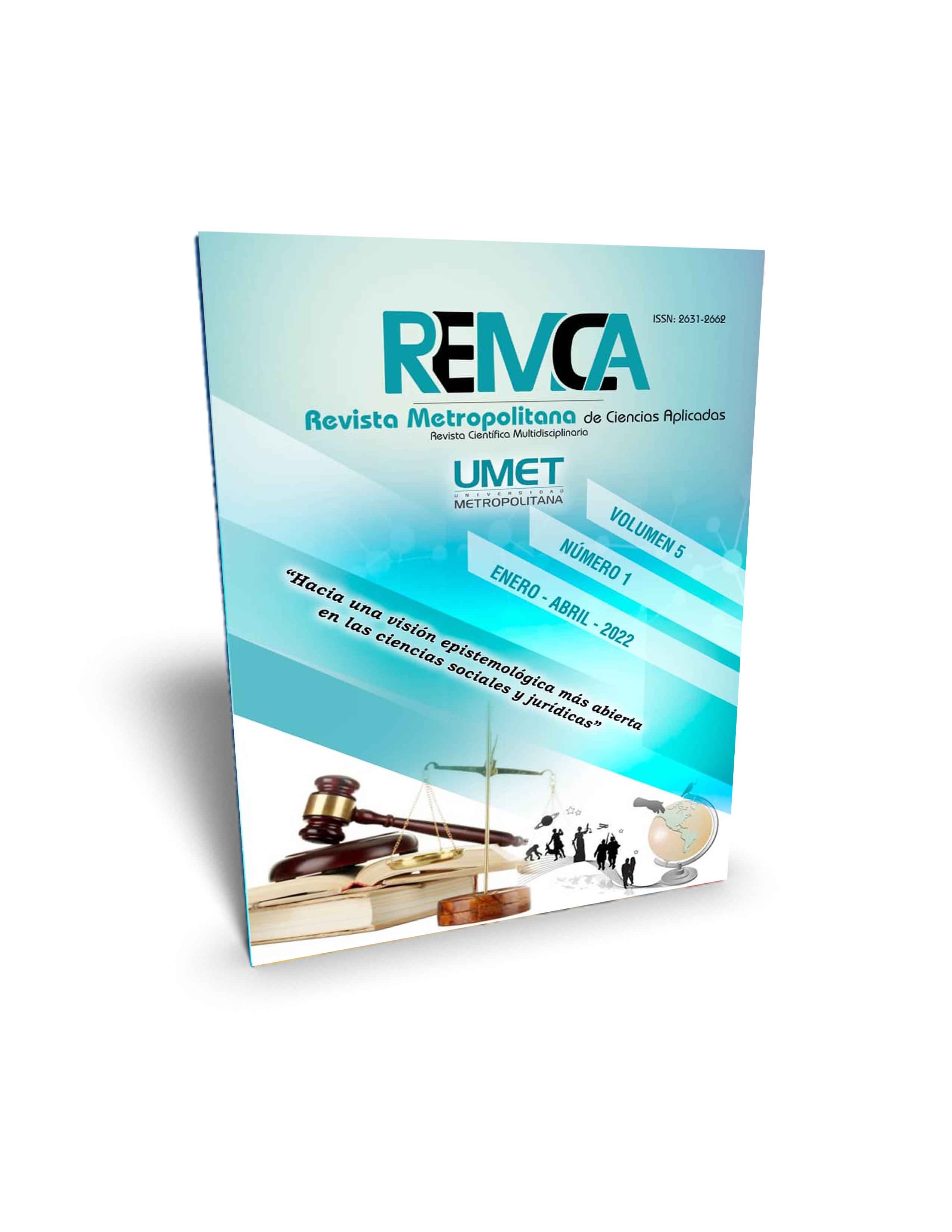Educational socialization in children with Down Syndrome: a path towards inclusion
DOI:
https://doi.org/10.62452/tje2qs19Keywords:
Down syndrome, different capacities, education, socialization, inclusionAbstract
The research development starts from the theories that affirm that the birth of children with Down syndrome and the physical characteristics they possess can affect socialization. The work involves the theoretical participation of David Ausubel, who indicates how important it is to sustain and manage meaningful learning. From this perspective, it was intended to strengthen social inclusion by ensuring that children with Down syndrome obtain a positive experience in a harmonious environment with a correct interrelation, thus justifying the right to education without being rejected by educational institutions. Finally, learning barriers were established, especially social ones where the context in which they operate can improve or harm their development and interrelation. The research was based on a quantitative approach, where the population consisted of three children with Down syndrome in the ages between 3 to 5 years, the study was descriptive and the instrument used for the collection of information an observation guide, with which he determined the aptitudes they acquired at the time of socialization with their peers, as well as the work of the teachers with the minors in their charge. Consequently, the main objective of this research was to contribute from socialization with an Educational Plan that strengthened the integration of children with Down Syndrome in educational centers in a pleasant and balanced environment, with the use of an adequate methodology that consolidated participation affective with equal opportunities.
Downloads
References
Antisoli Remolcoy, Y., Campusano Toledo, C. D., Moraga Leiva, T. M., Uberuaga Henríquez, M. J., San Martín Cantero, D., & Tapia Gutiérrez, C. P. (2019). Vivencias socioemocionales en familias de jóvenes con Síndrome de Down en Padre Las Casas, Chile. Actualidades Investigativas En Educación, 19(3), 1–26.
Artigas, M. (2015). Síndrome de Down (Trisomia 21). Trisomia 21, 37–41.
Cebula, K., Moore, D., & Wishart, J. (2010). La cognición social en los niños con síndrome de Down. Revista Síndrome de Down: Revista Española de Investigación e Información Sobre El Síndrome de Down, 104, 26–46.
Colindres, J., & López, L. (2010). El desarrollo social de los niños con síndrome de down en edad escolar. In Angewandte Chemie International Edition, 6(11), 951–952.
Duk, C., & Murillo, F. J. (2020). El Derecho a la Educación es el Derecho a una Educación Inclusiva y Equitativa. Revista Latinoamericana de Educación Inclusiva, 14(2), 11–13.
Ecuador. Congreso Nacional. (2004). Ley Orgánica de Transparencia y Acceso a la Información. Registro Oficial 337. https://www.oas.org/juridico/PDFs/mesicic5_ecu_ane_cpccs_22_ley_org_tran_acc_inf_pub.pdf
Lormendez Trujillo, N., & Cano Ruiz, A. (2020). Educación inclusiva de preescolares con síndrome de Down: la mirada de un grupo de educadoras de Veracruz, México. Actualidades Investigativas en Educación, 20(2).
Madrigal Muñoz, A. (2016). El Síndrome de Down. http://sid.usal.es/idocs/F8/FDO10413/informe_down.pdf
Machín Verdés, M., Purón Sopeña, E., & Castillo Mayedo, J. (2009). Reflexiones sobre la intervención temprana en niños con Síndrome de Down considerando la familia y la comunidad.. Revista Habanera de Ciencias Médicas, 8(1).
Nadel, L. (2003). Down’s syndrome: A genetic disorder in biobehavioral perspective. Genes, Brain and Behavior, 2(3), 156–166.
Organización de las Naciones Unidas para la Educación, la Ciencia y la Cultura. (2015). Educación inclusiva. UNESCO. http://www.inclusioneducativa.org/ise.php?id=1
Ramos, Y., & González, M. (2017). Un acercamiento a la función educativa de la familia. Revista Cubana de Medicina General Integral, 33(1), 100–114.
Rodrigues Rosa, L., & De Castro Menezes, A. B. (2019). Educational inclusion and social interaction: A literature review. Trends in Psychology, 27(2), 385–400.
Ruiz, E. (2011). La inclusión del alumnado con síndrome de Down en las escuelas: claves para el éxito. (Cómo trabajar por la integración sin morir en el intento). Rev. Síndr. Down, 109, 60–69.
Sánchez Espigares, S. (2015). El lenguaje y la comunicación en el niño con síndrome de Down. Psicopedagogía Del Niño Con Síndrome de Down, 3, 133–172.
Tapia-Gutiérrez, C. P., Palma-Mardones, A., & González-Parra, K. (2017). Atención temprana, percepción de madres de niños y niñas con Síndrome de Down TT - Early intervention, perception of mothers children’s with Down Syndrome. Actualidades Investigativas En Educación, 17(1), 255–277.
Viera, T. (2003). El aprendizaje verbal significativo de Ausubel. Universidades, 26, 37-43.
Downloads
Published
Issue
Section
License
Copyright (c) 2022 Azucena Monserrate Macías Merizalde, Elsa Josefina Albornoz Zamora, Marigina del Carmen Guzmán (Autor/a)

This work is licensed under a Creative Commons Attribution-NonCommercial-ShareAlike 4.0 International License.
Authors who publish in Revista Metropolitana de Ciencias Aplicadas (REMCA), agree to the following terms:
1. Copyright
Authors retain unrestricted copyright to their work. Authors grant the journal the right of first publication. To this end, they assign the journal non-exclusive exploitation rights (reproduction, distribution, public communication, and transformation). Authors may enter into additional agreements for the non-exclusive distribution of the version of the work published in the journal, provided that acknowledgment of its initial publication in this journal is given.
© The authors.
2. License
The articles are published in the journal under the Creative Commons Attribution-NonCommercial-ShareAlike 4.0 International License (CC BY-NC-SA 4.0). The terms can be found at: https://creativecommons.org/licenses/by-nc-sa/4.0/deed.en
This license allows:
- Sharing: Copying and redistributing the material in any medium or format.
- Adapting: Remixing, transforming, and building upon the material.
Under the following terms:
- Attribution: You must give appropriate credit, provide a link to the license, and indicate if any changes were made. You may do this in any reasonable manner, but not in any way that suggests the licensor endorses or sponsors your use.
- NonCommercial: You may not use the material for commercial purposes.
- ShareAlike: If you remix, transform, or build upon the material, you must distribute your creation under the same license as the original work.
There are no additional restrictions. You may not apply legal terms or technological measures that legally restrict others from doing anything the license permits.




